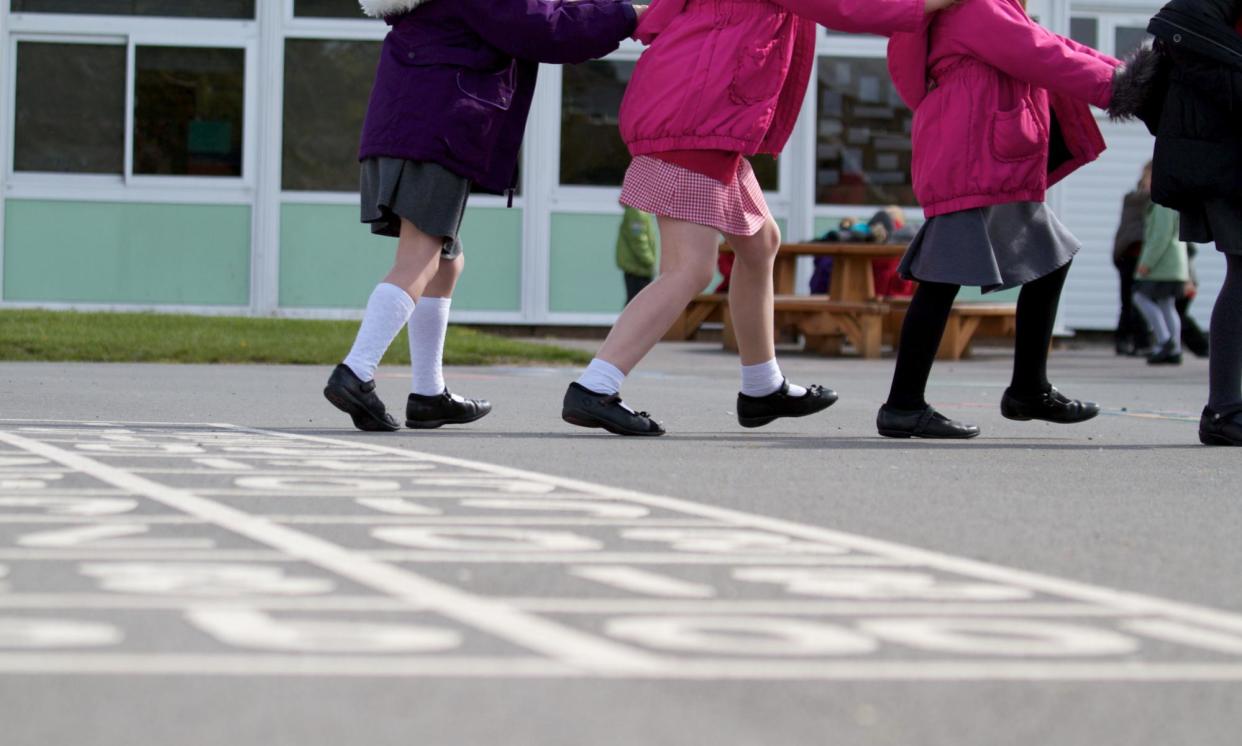Low wages under Tories have pushed 900,000 UK children into poverty, report finds

The crisis of poverty that has taken root in the UK over the past 14 years has been laid bare in two reports that reveal the devastating effects low wages and price increases on the lives of 900,000 children.
With both main parties proposing tough welfare spending plans, reports have highlighted the link between rising child poverty and slow wage growth under five Conservative governments since 2010 – the slowest growth since the second world war.
Research by the Trades Union Congress (TUC) found that over the past 14 years, an additional 1,350 children a week in households with at least one working parent had been dragged into poverty.
Paul Nowak, the general secretary of the TUC, said: “No child in Britain should be growing up below the breadline. But under the Conservatives we have seen a huge rise in working households being pushed into poverty. We urgently need an economic reset and a government that will make work pay.”
Wage stagnation was part of a “toxic combination” of insecure work and cuts to social security that had had a devastating impact on household budgets, the TUC found, increasing the number of children in poverty with at least one parent in work by 900,000 between 2010 and 2023.
The Institute for Fiscal Studies thinktank said on Monday that 30% of children now live in households below the official poverty line, up from 27% in 2010. Over the course of the next parliament, an additional 670,000 children will be affected by the two-child limit, which restricts eligibility to benefits, it said.
Related: Two-child benefit cap is ‘key driver of child poverty’ in UK, research suggests
Labour has pledged to review universal credit and to develop a strategy to reduce child poverty, but has announced no plans to scrap the two-child limit.
Separate analysis from the Resolution Foundation thinktank said average wages now were just £16 a week, or 2.5%, higher in real terms than when the Conservatives came to power in 2010.
By contrast, in the 14 years before 2010, average weekly wages grew by £145. Before the financial crisis in 2008, workers could expect wages to grow by 2.2%, about as much as they did over the past 14 years, in a single year.
If UK wages had kept pace with those in the US and Germany between 2010 and 2022, workers would have had an 0.8%-a-year pay rise, equivalent to £3,600 on average over the period. Even if wages had matched the 0.4% a year growth in Ireland over the term, pay packets would be fatter by an average of £1,600.
The reports underline the challenge facing the next government, as threadbare public services compete for resources. The IFS predicted that a Labour government would raise taxes or soften debt rules rather than cut spending on public services, especially given the pressure from public sector pay.
Families are routinely turning to teachers and GPs for help with feeding and clothing children, the Guardian has reported. Figures show that more than 1 million youngsters experienced destitution – extreme material hardship – last year.
Related: Eight in 10 primary teachers in England spending own money to help pupils
Earlier this month, the TUC published a report showing the number of people in insecure, low-paid work had increased by nearly 1 million during the Conservatives’ time in office, to a record 4.1 million.
The number of people in precarious employment – such as zero-hours contracts, low-paid self-employment and casual or seasonal work – increased by nearly 1 million between 2011 and 2023, the TUC said.
Work was the most effective way of exiting poverty for individuals, the Resolution Foundation said. But that link is fraying as more than a decade of cuts and rising costs have pushed households to pick up employment, no matter how precarious, to make ends meet. Under definitions where self-employment was included, precarious work accounted for most of the employment growth since the financial crisis, the Resolution Foundation said. The number of people on zero-hours contracts stands close to a record high at 1.03 million, while 13% of workers are on some form of flexible contract, it estimates.
Both the main parties have said they want to boost employment over the next parliament. The Resolution Foundation described this as “challenging”, since 58% of the rise in inactivity among working-age adult since 2019 is accounted for by people who do not expect ever to return to paid work. To improve the employment rate, parties would need to increase the participation of certain groups in the workplace, including older workers, women with children and those affected by ill-health and disability.
The Conservatives have said they would do this by toughening sanctions for people on unemployment benefit and cutting national insurance contributions, which would have small positive impacts on employment by increasing the benefit of working.
Labour’s proposals include local employment and skills support for those with health conditions, as well as careers and mental health support for young people. The Resolution Foundation called Labour’s employment rate target of 80% “extremely ambitious” by historical standards.
Hannah Slaughter, a senior economist at the Resolution Foundation, said: “Britain’s decade-long jobs boom during the 2010s has also gone bust, with the UK one of only a handful of countries where employment has yet to return to pre-pandemic levels.
“Both the main parties want stronger jobs growth over the next parliament, but offer very different approaches to achieving it. The Conservatives want to use carrots and sticks in the tax and benefits system, while Labour is prioritising career, skills and health support.”


